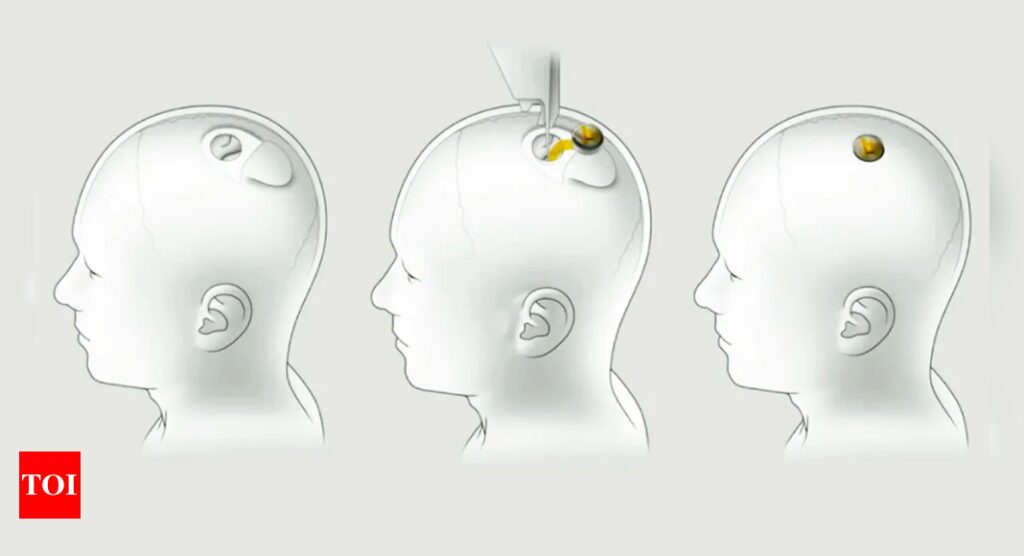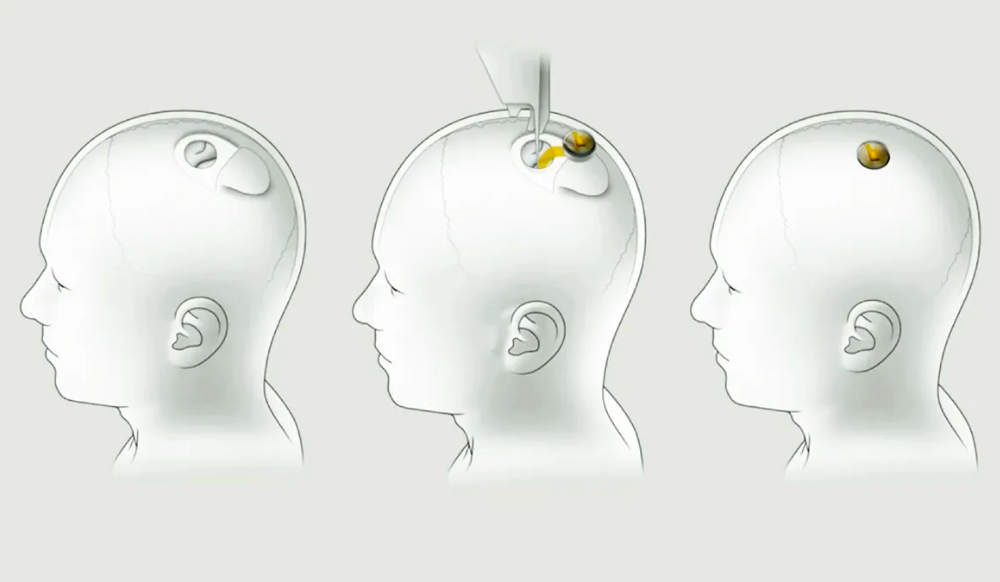[ad_1]
Elon Musk‘s Neuralink is searching for a volunteer to participate in the first clinical trial of its brain implant chip, after it received approval earlier this year. While it does sound like an episode of Black Mirror, there are thousands of people who have lined up to participate in the six-year trial, which begins next year.
“Neuralink has received an outpouring of interest from thousands of prospective patients,” wrote Ashlee Vance, one of Elon Musk‘s biographers, in Bloomberg’s report.
To participate, an ideal candidate has to be an adult below the age of 40, who has all four limbs paralyzed. The trial involves a surgical procedure in which a robotic arm will insert electrodes and extremely thin wires into the brains of the participants.
To do this, a small portion of the participant’s skull will be removed and replaced with a computer the size of a quarter. The implanted computer will be responsible for collecting and analysing the person’s brain activity, which will be sent wirelessly to a nearby laptop or tablet. The computer is meant to stay in place for several years.
This patient would have Neuralink’s implant inserted into the hand knob area of their premotor cortex, which controls the movements of hands, wrists, and forearms.
The primary objective is to demonstrate that the implant can safely collect valuable data from this area of the patient’s brain. This is a significant step in Neuralink’s pursuit of translating a person’s thoughts into a range of commands that a computer can comprehend.
Neuralink’s trails on animals
Neuralink has used several animals as test subjects to demonstrate the capabilities of its brain-computer interface technology. One monkey was shown playing ping pong using its brain, while another was taught to type messages and wirelessly charge itself. A pig was also shown running on a treadmill.
However, according to insider reports, the animal trials have been criticised for causing unnecessary suffering during the testing process. Former employees have described the process as “hack jobs,” citing an incident where the device was implanted in the wrong position in pigs, resulting in their euthanasia. These allegations have led to multiple investigations, including the ones by the Department of Agriculture into animal abuse and by the Department of Transportation over the mishandling of hazardous materials across state lines.
“Neuralink has received an outpouring of interest from thousands of prospective patients,” wrote Ashlee Vance, one of Elon Musk‘s biographers, in Bloomberg’s report.
To participate, an ideal candidate has to be an adult below the age of 40, who has all four limbs paralyzed. The trial involves a surgical procedure in which a robotic arm will insert electrodes and extremely thin wires into the brains of the participants.
To do this, a small portion of the participant’s skull will be removed and replaced with a computer the size of a quarter. The implanted computer will be responsible for collecting and analysing the person’s brain activity, which will be sent wirelessly to a nearby laptop or tablet. The computer is meant to stay in place for several years.
This patient would have Neuralink’s implant inserted into the hand knob area of their premotor cortex, which controls the movements of hands, wrists, and forearms.
The primary objective is to demonstrate that the implant can safely collect valuable data from this area of the patient’s brain. This is a significant step in Neuralink’s pursuit of translating a person’s thoughts into a range of commands that a computer can comprehend.
Neuralink’s trails on animals
Neuralink has used several animals as test subjects to demonstrate the capabilities of its brain-computer interface technology. One monkey was shown playing ping pong using its brain, while another was taught to type messages and wirelessly charge itself. A pig was also shown running on a treadmill.
However, according to insider reports, the animal trials have been criticised for causing unnecessary suffering during the testing process. Former employees have described the process as “hack jobs,” citing an incident where the device was implanted in the wrong position in pigs, resulting in their euthanasia. These allegations have led to multiple investigations, including the ones by the Department of Agriculture into animal abuse and by the Department of Transportation over the mishandling of hazardous materials across state lines.
[ad_2]
Source link











More Stories
We can’t wait to face India in the final: Pat Cummins | Cricket News
Railways plans 3,000 additional trains in next 4-5 years to minimise number of waitlisted tickets | India News
Faridabad: Man dies after ‘falling from hotel room window’ while partying with friends